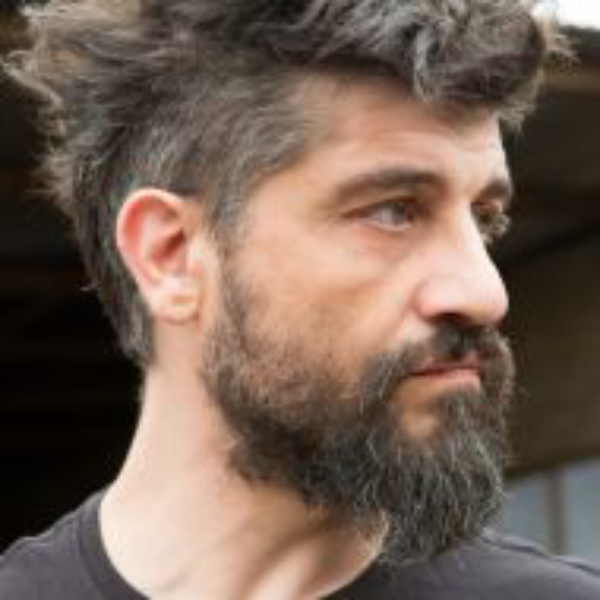Simos Kakalas

Simos Kakalas was born in Thessaloniki in 1973. He graduated from the Drama School of the National Theatre of Northern Greece and began his career as an actor at the “Nees Morfes” Theatre Company, which he also co-founded. As a director, he has presented productions of Spyros Peresiadis’ Golfo, Bergadis’ Apokopos, Sakis Serefas’ Melted Butter (Director’s distinction, Union of Greek Critics for Drama and Music, 2008), Theofrastos Sakellaridis’ The Godson (Greek National Opera) and Rainer Werner Fassbinder’s Ali: Fear Eats the Soul (Greek Art Theatre Karolos Koun), to name a few.
He has taught acting, vocal coaching, and improvisation at the drama schools of the National Theatre of Greece, the National Theatre of Northern Greece, and the Athens Conservatoire. Furthermore, he has organized seminars and workshops on the mask, the dekapentasyllabos (15-syllable) verse, as well as on improvisation.
In 2000, he participated in a seminar on Euripides’ The Bacchae, organized by the Union des Théâtres de l’Europe (UTE), during which five actors from three different theatre companies, directed by Sándor Zsótér, created the performance Getting Horny, which toured Europe.
Workshop “The Servant as the Outsider in Ancient Comedy: Mask and Improvisation”
The servant in ancient drama is an outsider (xenos) who has no right to decide for herself/himself. Deprived of citizenship rights, but still in full possession of a voice, opinion and disposition, the outsider has evolved over the centuries, as seen in the numerous representations and variations one comes across while studying the history of theatre.
This workshop will approach the character of the servant through a methodology developed by Simos Kakalas over the last 15 years, drawing on mask, improvisation, and the character’s interaction with the audience.
Focusing on Aristophanes’ The Acharnians, the workshop will explore the symbiotic relationship between the servant and the citizen, the political dimensions of the interaction between performer and chorus and how the comical element promotes the above dialectics. Students will be asked to conduct research on the main characters of the play (Dikaiopolis, Lamachus) and the chorus. The end product of this workshop will be presented in the form of a public performance.





